 The main reason for keeping electrical control panels enclosed is to stop environmental influences like dust and condensation from damaging their sensitive components. However, because they’re enclosed, control panels also need to be properly cooled to prevent heat from accumulating too close to those components. In some cases, especially when air conditioning is used to control waste heat, being enclosed may not always be enough to protect electrical components from condensation or the damage that it could cause. With Noren’s heat exchangers and variety of custom thermal management solutions, we can help all of our clients keep their control panels cool while avoiding the potential for condensation. (more…)
The main reason for keeping electrical control panels enclosed is to stop environmental influences like dust and condensation from damaging their sensitive components. However, because they’re enclosed, control panels also need to be properly cooled to prevent heat from accumulating too close to those components. In some cases, especially when air conditioning is used to control waste heat, being enclosed may not always be enough to protect electrical components from condensation or the damage that it could cause. With Noren’s heat exchangers and variety of custom thermal management solutions, we can help all of our clients keep their control panels cool while avoiding the potential for condensation. (more…)
The Evolution of Electrical Thermal Management
 Efficiency and productivity have always been a focal point of technology, and as it has advanced throughout the decades, the means for managing electrical waste heat have evolved to keep up. At Noren, innovative thermal management has been our specialty for over 40 years, and we continue to exceed our clients’ expectations by creating solutions to meet every application. As the demand for more efficient and ecofriendly technology has grown, our expertise has helped lead the way in meeting those demands. (more…)
Efficiency and productivity have always been a focal point of technology, and as it has advanced throughout the decades, the means for managing electrical waste heat have evolved to keep up. At Noren, innovative thermal management has been our specialty for over 40 years, and we continue to exceed our clients’ expectations by creating solutions to meet every application. As the demand for more efficient and ecofriendly technology has grown, our expertise has helped lead the way in meeting those demands. (more…)
Choosing Heat Exchangers Based on Comprehensive Analysis
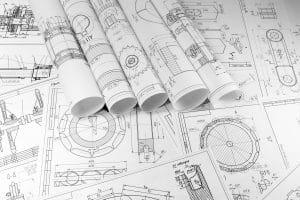 For most electrical systems in most industries and applications, heat exchangers offer a significantly more efficient and reliable solution to thermal management compared to air conditioning. However, with an increasingly wide variety of ecofriendly thermal management solutions, choosing the right heat exchanger should involve a comprehensive analysis of the existing system to determine its exact operating requirements and limitations. At Noren, quality is a defining characteristic of every one of our products, and maintaining our high standards relies largely on the analysis, design, and in-house manufacturing services we provide. (more…)
For most electrical systems in most industries and applications, heat exchangers offer a significantly more efficient and reliable solution to thermal management compared to air conditioning. However, with an increasingly wide variety of ecofriendly thermal management solutions, choosing the right heat exchanger should involve a comprehensive analysis of the existing system to determine its exact operating requirements and limitations. At Noren, quality is a defining characteristic of every one of our products, and maintaining our high standards relies largely on the analysis, design, and in-house manufacturing services we provide. (more…)
Thermal Management—More than a Manufacturing Concept
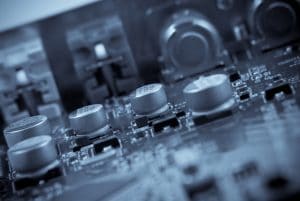 Leaders in all industries understand the importance of reliable, efficient thermal management. Without it, electrical control panels and other enclosures would overheat, damaging necessary equipment and halting production. However, thermal management is essential for more than just industry and business. Everything from personal laptops and cellphones to televisions and automobiles rely on the ability to effectively transfer the waste heat that each product generates. At Noren, we’ve specialized in creating thermal management solutions for virtually every application for over 40 years. Today, we continue to lead the way in helping technology of all shapes and sizes operate at maximum efficiency with the help of advanced heat exchangers. (more…)
Leaders in all industries understand the importance of reliable, efficient thermal management. Without it, electrical control panels and other enclosures would overheat, damaging necessary equipment and halting production. However, thermal management is essential for more than just industry and business. Everything from personal laptops and cellphones to televisions and automobiles rely on the ability to effectively transfer the waste heat that each product generates. At Noren, we’ve specialized in creating thermal management solutions for virtually every application for over 40 years. Today, we continue to lead the way in helping technology of all shapes and sizes operate at maximum efficiency with the help of advanced heat exchangers. (more…)
Do Heat Exchangers Really Save Energy?
 With an increasingly urgent need for industries to find innovative ways to conserve energy, thermal management may not be the first field that comes to mind. However, for many facilities, especially those that rely on air conditioning or air compression to cool their electrical enclosures, thermal management may be one of the biggest areas in which the company expends energy. The good news is that there are several alternatives to traditional air conditioning equipment for keeping electrical waste heat at bay. For instance, heat exchangers can often outperform air conditioning equipment using significantly less energy, and taking up notably less space. (more…)
With an increasingly urgent need for industries to find innovative ways to conserve energy, thermal management may not be the first field that comes to mind. However, for many facilities, especially those that rely on air conditioning or air compression to cool their electrical enclosures, thermal management may be one of the biggest areas in which the company expends energy. The good news is that there are several alternatives to traditional air conditioning equipment for keeping electrical waste heat at bay. For instance, heat exchangers can often outperform air conditioning equipment using significantly less energy, and taking up notably less space. (more…)
Different Choices for Electrical Cabinet Cooling
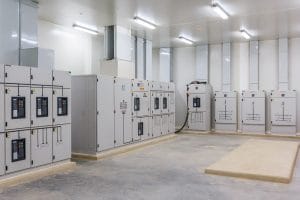 Managing waste heat has always been a concern regarding electrical equipment. As technology has advanced over the last several decades, that concern has grown and evolved, especially as control panels and other systems continue to grow smaller. Fortunately, thermal management solutions have evolved right alongside the technology that they are meant to keep cool. Today, you have several choices for electrical cabinet cooling, as well as thermal management for systems and applications of all sizes. (more…)
Managing waste heat has always been a concern regarding electrical equipment. As technology has advanced over the last several decades, that concern has grown and evolved, especially as control panels and other systems continue to grow smaller. Fortunately, thermal management solutions have evolved right alongside the technology that they are meant to keep cool. Today, you have several choices for electrical cabinet cooling, as well as thermal management for systems and applications of all sizes. (more…)
Why Heat Exchangers May Be Ideal for Automated Technology
 Automated technology may have seemed far-fetched not too long ago. Today, however, the technology is widely used, and its use is continuing to grow. From automatic garage door openers and driverless Google cars to automated industrial and manufacturing equipment, automation has become an important part of daily life. Like all technology, however, automated equipment requires electrical thermal management solutions that match the technology’s operational goals. In this case, that means minimizing the need for maintenance as well as significantly improving productivity. (more…)
Automated technology may have seemed far-fetched not too long ago. Today, however, the technology is widely used, and its use is continuing to grow. From automatic garage door openers and driverless Google cars to automated industrial and manufacturing equipment, automation has become an important part of daily life. Like all technology, however, automated equipment requires electrical thermal management solutions that match the technology’s operational goals. In this case, that means minimizing the need for maintenance as well as significantly improving productivity. (more…)
The Benefits of Below-Ambient Cooling
 For decades, ambient cooling technology has given manufacturing and other companies significant cost-saving benefits on their electrical thermal management needs. By continuously transferring electrical waste heat, ambient heat exchangers can keep the temperature inside of an electrical enclosure at just above the ambient temperature outside of it. However, there are cases when ambient temperatures are not cool enough to prevent electrical overheating, or when certain processes require the ability to lower temperatures further. In such cases, Noren has been proud to provide below-ambient cooling technology, and even more benefits for industries that rely on it. (more…)
For decades, ambient cooling technology has given manufacturing and other companies significant cost-saving benefits on their electrical thermal management needs. By continuously transferring electrical waste heat, ambient heat exchangers can keep the temperature inside of an electrical enclosure at just above the ambient temperature outside of it. However, there are cases when ambient temperatures are not cool enough to prevent electrical overheating, or when certain processes require the ability to lower temperatures further. In such cases, Noren has been proud to provide below-ambient cooling technology, and even more benefits for industries that rely on it. (more…)
Advantages of Ambient Heat Exchangers
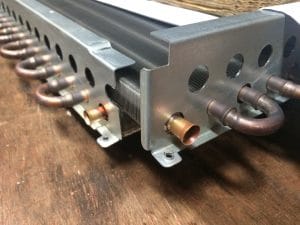 For your home, office, or automobile, air conditioning may be a necessity to beat the heat and stay comfortable. Electrical equipment doesn’t operate on the same principles. Circuits and components can overheat if not properly cooled, but the heat is not from the environment; it’s the waste energy that electrical equipment emits as it operates. Instead of relying on large air conditioning units to keep electrical enclosures cool, most organizations have realized the many benefits of switching to ambient heat exchangers. The units are designed to keep temperatures inside of electrical enclosures at just above the ambient temperature outside of them—not chilling the air, but still preventing heat pockets from forming near electrical circuits. (more…)
For your home, office, or automobile, air conditioning may be a necessity to beat the heat and stay comfortable. Electrical equipment doesn’t operate on the same principles. Circuits and components can overheat if not properly cooled, but the heat is not from the environment; it’s the waste energy that electrical equipment emits as it operates. Instead of relying on large air conditioning units to keep electrical enclosures cool, most organizations have realized the many benefits of switching to ambient heat exchangers. The units are designed to keep temperatures inside of electrical enclosures at just above the ambient temperature outside of them—not chilling the air, but still preventing heat pockets from forming near electrical circuits. (more…)
What Are Thermal Pins?
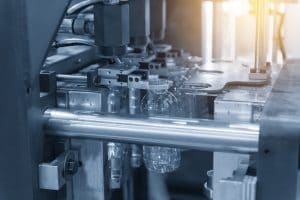 When you think of thermal management for advanced technology, the most common applications involve heat exchangers for electrical enclosures, such as control panels. Efficiently transferring electrical waste heat is vital for any technology’s continued operation, and heat exchangers are one of the most popular methods of doing so. However, thermal management encompasses much more than preventing electrical overheating. For instance, in the molding industry, specialized heat pipes known as thermal pins are used for a variety of applications, helping companies apply the same heat transfer technology to improving productivity. (more…)
When you think of thermal management for advanced technology, the most common applications involve heat exchangers for electrical enclosures, such as control panels. Efficiently transferring electrical waste heat is vital for any technology’s continued operation, and heat exchangers are one of the most popular methods of doing so. However, thermal management encompasses much more than preventing electrical overheating. For instance, in the molding industry, specialized heat pipes known as thermal pins are used for a variety of applications, helping companies apply the same heat transfer technology to improving productivity. (more…)







